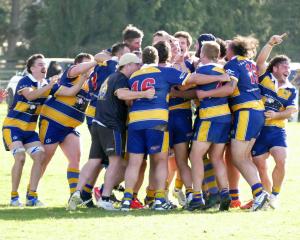
University of Otago biomedical sciences researcher Dr Jerin Mathew is investigating non-invasive pain relief through brainwave training, and he recently received a $US20,000 (about $NZ36,000) early career research grant from the International Association on the Study of Pain (IASP) to carry out his research.
It is the first time a pain researcher from New Zealand has been awarded the funding.
His innovative approach to advancing pain research involves neuromodulation — technologies that directly target brain activity to improve pain outcomes.
"My research programme looks into understanding and treating musculoskeletal chronic pain, like joint pain, numbness and pins and needles, or shooting pain.
"I will use something called brainwave training — it’s called neurofeedback."
He said the aim was to use an electroencephalogram (EEG) — an electrode cap which is placed on the head — to capture the electrical activity of the brain when the wearer feels pain.
"What we know from other studies and our own studies from literature, is that these parts of the brain are over-activated or under-activated in people with chronic pain.
"So, what we do is if that region of the brain is over-activated, we train the person to under-activate it or down-regulate that part of the brain.
"What we hope to do is set a threshold on the system, and every time the patient’s brain activity threshold falls below the threshold that we set, they will receive an auditory feedback.
"So, over a period of time, that is actually causing brain retraining. It is like feedback-based learning."
The therapy was a promising, non-invasive approach that empowered patients to train their brain activity, potentially reducing their pain experience, he said.
He said the research was partly inspired by people with knee osteoarthritis, a painful degenerative condition of the knee joint.
"What we’ve seen is people who undergo a knee replacement, but they come back to the clinic with the same amount of pain after the operation, even though there is no more knee joint which is causing the pain.
"This has led to a lot of studies, and what we found is there are a lot of changes happening in the brains of people with chronic pain.
"What we are doing is a different approach, which is a top-down approach.
"We are targeting the brain and we are trying to bring that [pain] balance back to the normal."
He said many patients did not achieve lasting relief from existing pain treatment, and present therapies often came with significant side effects.
"This therapy may offer hope for better pain management for the one in five New Zealand adults suffering chronic pain."











